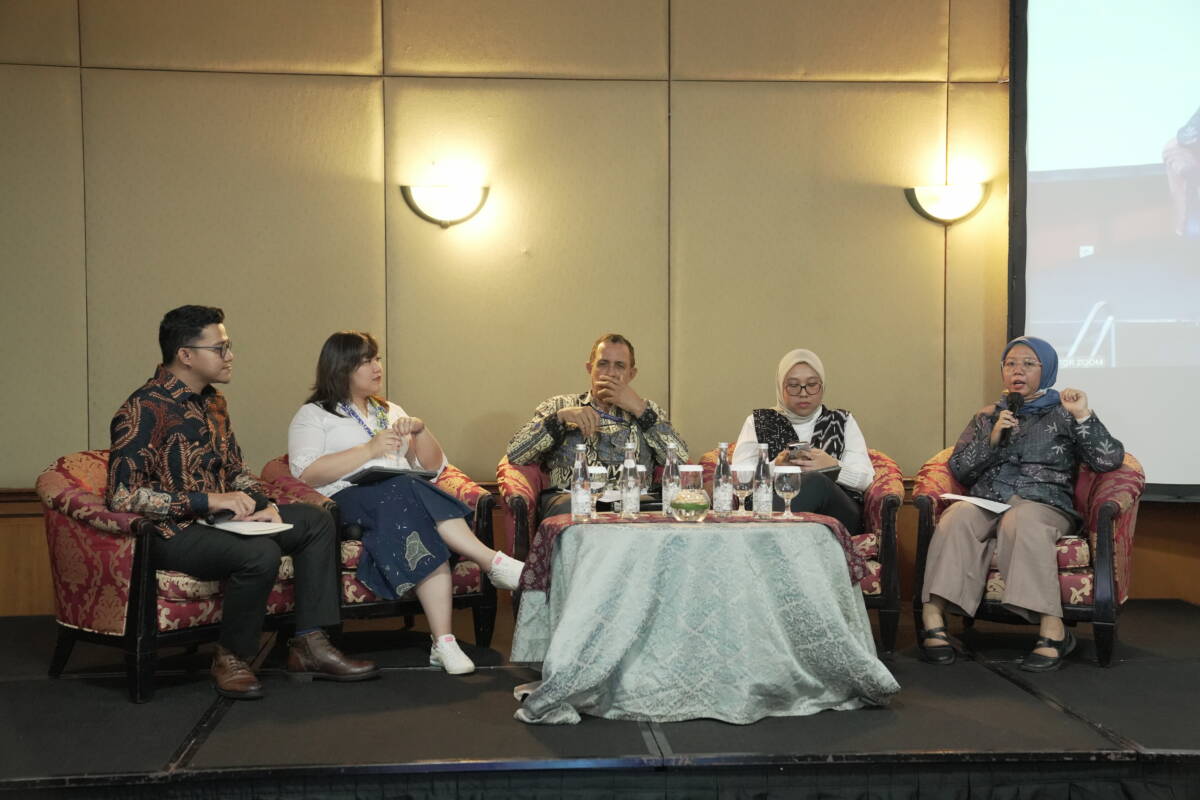Jakarta, June 12, 2025 – Small and Medium Enterprises (SMEs) contribute to more than 60 percent of Indonesia’s GDP and 97 percent of employment in Indonesia. This large economic contribution also brings significant emissions. The transformation of the Indonesian SME sector towards a lower emission production system will be one of the strategic steps to decarbonize Indonesia’s industrial ecosystem and contribute to Indonesia’s NZE target of 2060 or sooner.
The Institute for Essential Services Reform (IESR) in collaboration with the Ministry of National Development Planning/Bappenas and the Asian Development Bank (ADB) sees the need for practical guidelines for small and medium entrepreneurs when they are going to transform their businesses into green SMEs.
Renadi Budiman, Deputy Country Director, ADB Indonesia Resident Mission, in the White Paper Discussion forum on Policy Recommendations for Green SME Transformation, stated that the world economic system is in a period of major transition driven by climate change. International agreements such as the Paris Agreement and the Carbon Border Adjustment Mechanism (CBAM) determine market access and capital access.
“There is a change in investor interest in investing. Sustainability aspects such as environment, social, and governance are one of the main considerations before investing. With Indonesia’s large MSME ratio, this policy will also have an impact on the MSME sector,” he said.
Maliki, Deputy for Community Empowerment, Population, and Manpower at Bappenas confirmed this and stated that Indonesia’s trading partner countries have begun implementing environmental certification for their imported products.
“This is critical for MSMEs, because if MSMEs are also subject to this regulation, the export value of Indonesian MSMEs will drop drastically,” said Maliki.
Faricha Hidayati, Coordinator of the Industrial Decarbonization Project, IESR, one of the authors of the policy white paper explained that the writing team created a number of green MSME indicators, including production processes that use the principle of green processing, goods produced are green products, and businesses that implement sustainable principles and good governance.
“The decarbonization transformation of the SME sector has been carried out by several countries, which means that lesson learnt already exist with various strategies. The next challenge is cooperation between sectors, including the government and training institutions to build the capacity of SMEs,” said Faricha.
Ristika Putri Istanti, Head of the Secretariat of the Sustainable District Meeting Circle (LTKL), said that the interest of SMEs to transform towards a more efficient and green production system is high, especially since there are economic consequences related to product acceptance in the market.
“With this great interest from SMEs, it is necessary to prepare a transformation design that is in accordance with the current situation of Indonesian SMEs. We see the need for strengthening human resources and institutions for SMEs as well as strengthening the ecosystem of the SME product supply chain upstream and downstream,” she said.
Lishia Erza, ADB Consultant, who is also a member of the white paper writing team, explained that the existence of this white paper on green SME transformation recommendations will be a signal and guide for the SME sector that is interested in taking part in the transition and the national NZE.
“In general, we recommend that there are criteria for green SMEs based on ESG principles and governance; there is a division of green SME categories starting from certified, emerging, and potential; there is access to funding; the obligation to fulfill ESG principles, and the existence of a Green SME Innovation Center,” said Lishia.
The white paper document prepared as a result of collaboration between IESR, Bappenas and ADB highlights five focuses for accelerating the development of SME transformation to be more sustainable. Among them are target preparation, development of fiscal and non-fiscal incentives, capacity development, acceleration of technology and innovation adoption, and preparation of a legal and regulatory framework that is aligned at the regional and national levels.

